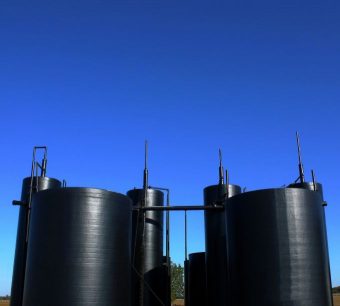
Nigeria slumped into recession and Norway’s economic growth slowed to a standstill in the second quarter. Both countries rely on oil for a big chunk of their exports and have been hit hard by the collapse in prices.
Oil has recovered from February’s low of just over $26 per barrel but the current price of about $46 is still less than half what producers were getting just two years ago.
Nigeria’s second quarter GDP fell by more than 2% compared to last year, after slipping by 0.4% in the first quarter. Two consecutive quarters of decline mean Nigeria is now officially in recession.
Low oil prices and fuel shortages have hit Nigeria’s economy hard.
Nigeria isn’t only hurting from low prices. Its oil output also fell sharply because of a series of rebel attacks on infrastructure. Other sectors suffered too, with manufacturing and retail hit by chronic power outages.
The slump in oil prices has drained Nigeria’s foreign currency reserves. To stem the outflow of cash from the country, the government introduced strict restrictions on importing goods that it said could be produced locally. But that decision has reduced the flow of raw materials to the country’s manufacturers.
“Much of the blame for this must fall on Nigeria’s government. Import restrictions have crippled the manufacturing sector, which was long seen as a potential driver of non-oil growth,” said John Ashbourne, Africa economist at Capital Economics.
Norway’s offshore oil, gas and shipping activity shrank by 1.4% in the quarter, while mainland GDP grew just 0.4%.
The government has been forced, for the first time, to tap the nation’s huge sovereign wealth fund. Norway’s central bank said the country might be forced to withdraw more than $9 billion from the $888 billion pension fund in 2016 to make up for the collapse in oil revenue.
Source: money.cnn.com

